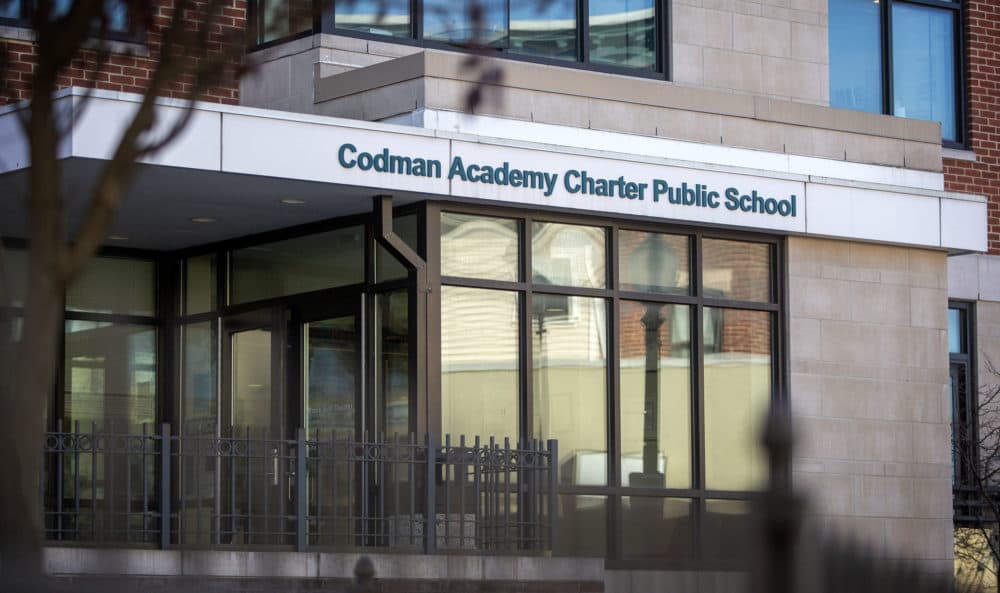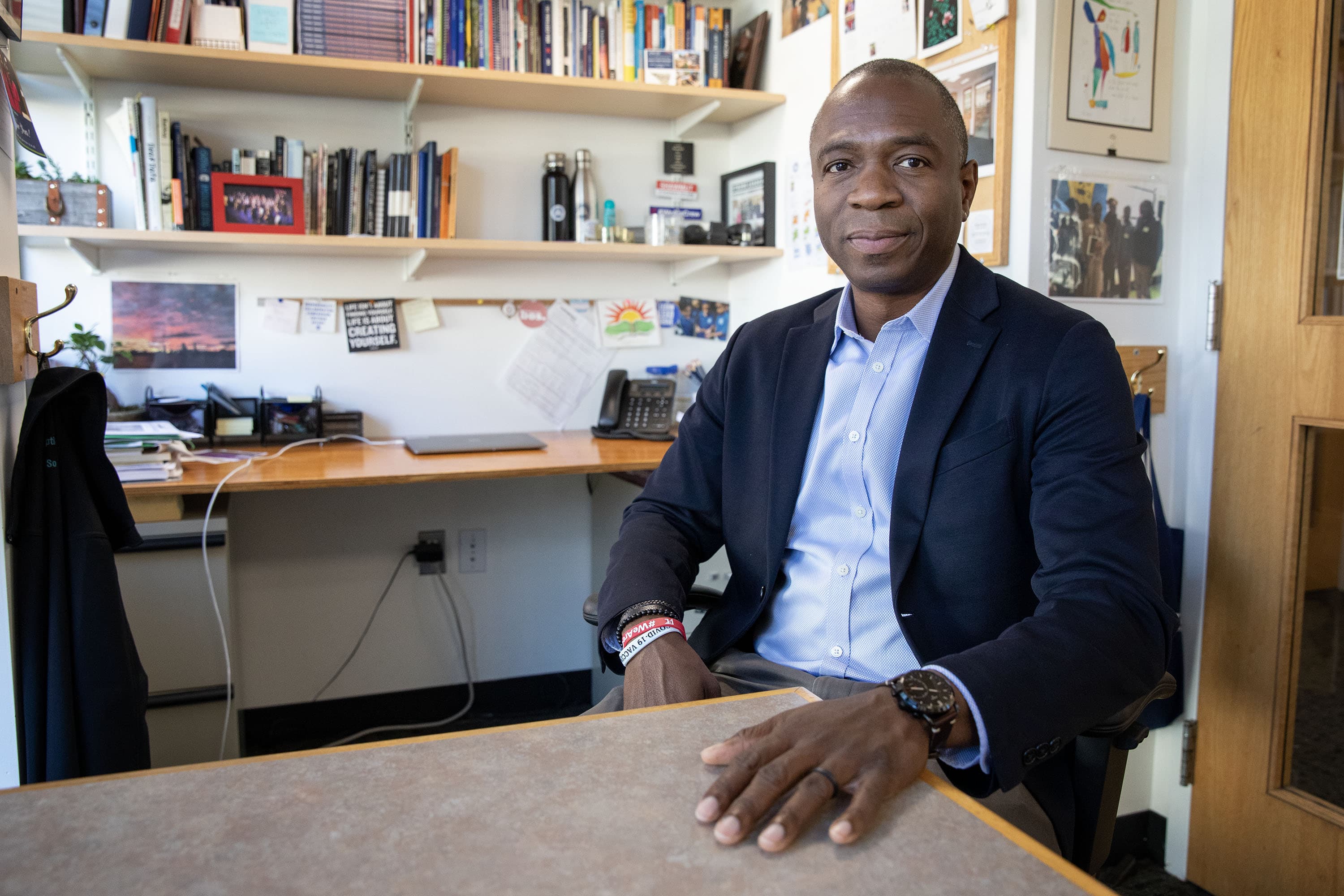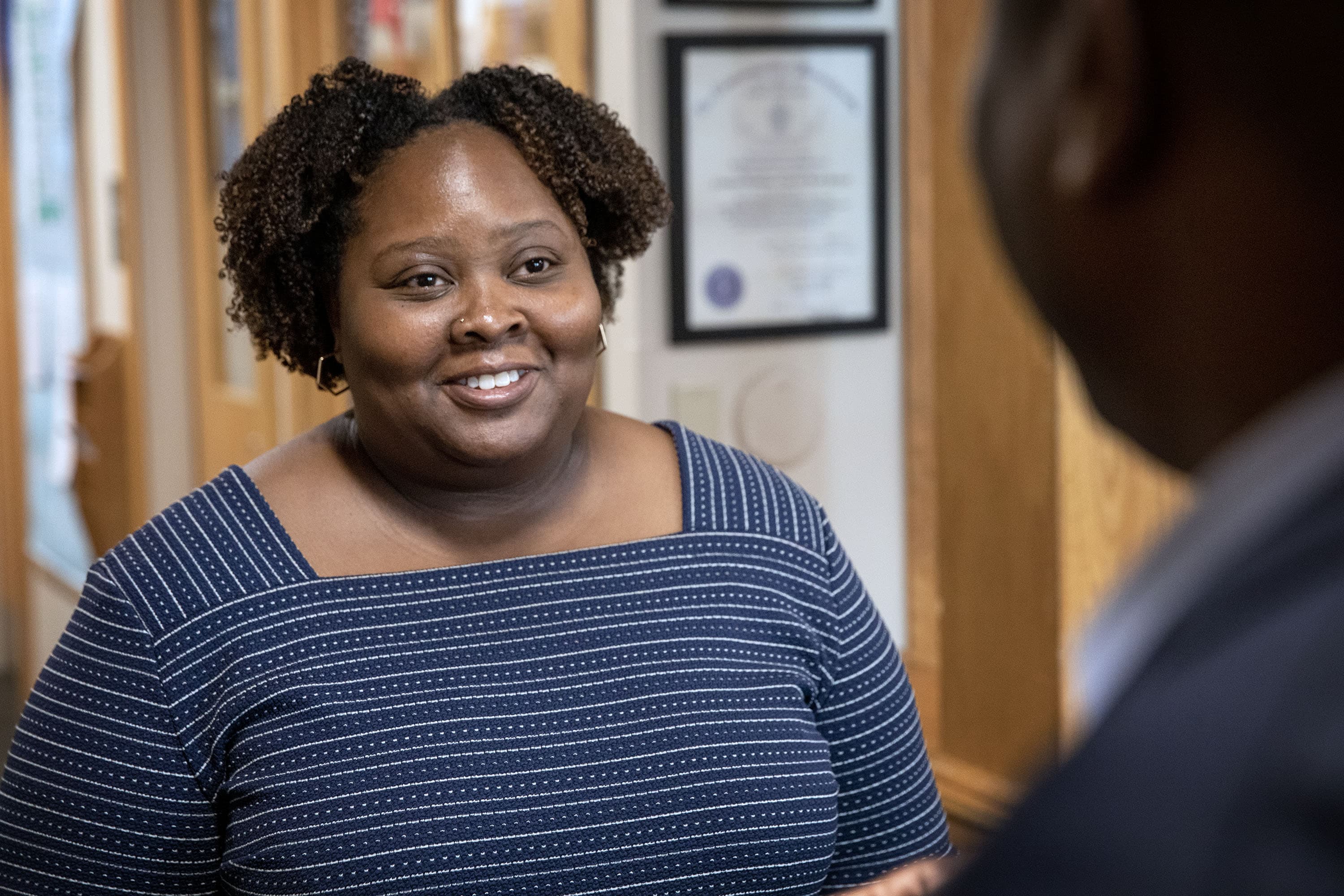Advertisement
College enrollment is way down. How charter schools are adapting
Resume
It's November, meaning college application season is officially underway. And after two years of stunted enrollment due to the impacts of the pandemic, high schools across Massachusetts are hoping for a recovery during the current cycle.
Some Massachusetts charter schools that specialize in college prep, in particular, are trying to adjust.
They're redoubling efforts to check in with students: face-to-face, before and after graduation. At the same time, they're acknowledging that college may not be the best option for many of the young people they serve.
"We're trying to be inclusive," said Owen Stearns, CEO of Excel Academy Charter Schools, a network of schools which serves almost 1,400 students in Chelsea and East Boston. "There are real, valid pathways that don't include college... and we want to support that."
This shift in thinking comes amid a sharp decline in college enrollment since the onset of the pandemic. Historically, the state's charter schools have outpaced traditional public schools in this metric.
In spring 2020, 82% of the newest graduates of all Massachusetts charter schools were enrolled in some form of higher education — counted as either a 2-year or 4-year institution — compared to 72% of graduates from traditional public schools, state data shows.
Since the pandemic, that ten percentage-point lead has narrowed by almost a third.
Among the 10 Massachusetts public schools that experienced the largest drops in college attendance over the last two years, six were charter schools.
Excel Academy High School in East Boston is one of them: the percent of its graduates who were enrolled in college by the spring dropped from 86% in 2020 to 63% in 2022.
Charter school leaders point to long-term, institutional forces behind the drop.
"Higher education is broken, frankly,” said Thabiti Brown, head of the Codman Academy Charter School in Dorchester. With its high costs, required paperwork and relative lack of on-campus support, “[college] is not set up for low-income people, working-class people," he said.

Shifting Expectations
Almost two-thirds of the students at the state's 78 charter schools come from low-income households, compared to 43% who attend traditional public schools. Publicly funded but self-governed, the charter schools are relatively free to focus on particular educational outcomes. And at many of the schools, getting students into college has been the overriding mission.
“When we were a new school and graduated our first classes, from 2005 through 2009, we were pushing college-only — and four-year college only,” said Brown, who was among the group that founded Codman Academy in 2001.
Many charter schools, in turn, wear their expectations on their sleeve: college pennants hang on the walls and staff dress in gear from their alma maters.
“It is so important for our students to see people that resonate with their identities, and see that, ‘hey, they went to college — maybe I can, too,’” said Kelly Garcia, who runs transition planning at East Boston's Excel Academy High School.
Garcia speaks from experience. After graduating from Excel in 2007, she became the first in her family to pursue higher education: she earned a bachelor’s degree from Holy Cross and a master’s from Boston University.
But even before the pandemic, school leaders observed a problem with the college-for-all mandate: a sizable minority of graduates didn’t want to go and didn’t thrive when they enrolled.
“[They] were going for a year and then not continuing — walking away with tens of thousands of dollars of debt and no degree, which is the very worst-case scenario,” Brown said.
Stearns, the CEO of the Excel Academy network, noted that he observed roughly 10% to 15% of kids who didn't want to go to college, though that number may be "increasing" of late, he said.
Some charter schools have now modified their approach, but without abandoning a culture of high expectations. At Codman Academy, for example, while all students are expected to apply to college, they're no longer being pushed to enroll, Brown said.
Adding Supports
Charter schools are also doubling down on offering student support and counseling.
At Codman, for example, school leaders drew on federal relief dollars to make its dean of alumni position full-time. Deans of alumni stay in touch with former students for several years after graduation, and are common at charter schools.
Cori Bodley, Codman's dean of alumni, says that pivot has allowed her to fill a more hands-on role, including visiting recent grads on their college campuses and doing one-on-one check-ins: “A lot of our students do really respond well to me," she said.

The latest state staffing data show student support staff at charter schools grew by 51% between 2020 and 2022, compared to 27% at traditional public schools. Support staff includes social workers, guidance counselors, school adjustment counselors and family engagement staff.
At Excel Academy, Kelly Garcia is one of eight full-time transition counselors and has a caseload of around 50 students — far lower than a state average that ranges from 250 to nearly 400 students per counselor or support staff member.
Excel Academy hasn’t grown the size of its support staff — but expectations have changed. Garcia says she spends much of her time supporting students “outside the classroom” — visiting crowded apartments, securing assistance with rent, food, or other basic necessities.
"If you are ever in Chelsea and are able to visit the days that we give out food, it is still very clear that our families continue to face hardships — there are long lines until this day,” she said.
Those extra support seems to be making a difference, at least when it comes to rebooting students' past momentum toward higher education. At Excel Academy, there was an uptick in college enrollment for its class of 2022, per school data, though it was "not even halfway back" to pre-pandemic levels, according to Stearns.
None of the charter school leaders interviewed are ready to dismiss college goals entirely.
"There's also a lot of data that if you've got a college degree, your opportunities of life do grow significantly — we want [students] to be aware of that," Stearns said.
